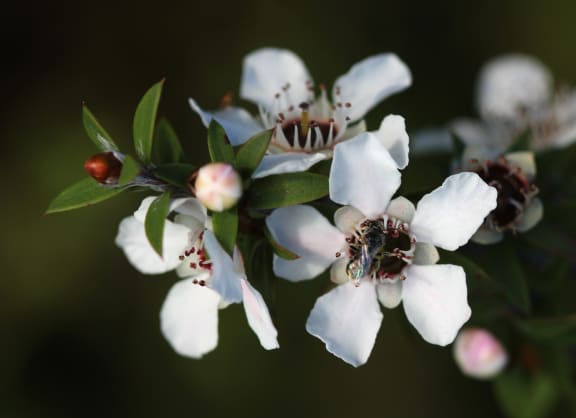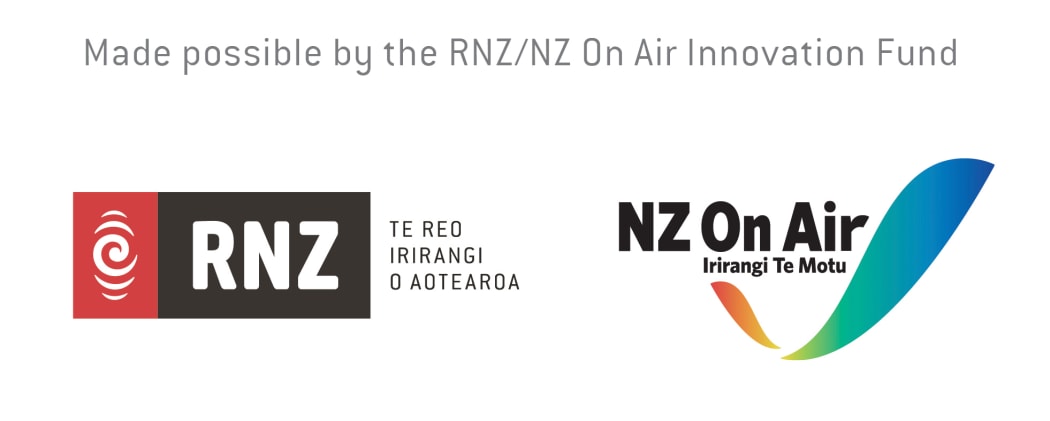Australian beekeepers are staking their claim over products branded as mānuka honey.
Small jars of New Zealand Mānuka honey are about to go on sale in the UK for nearly $3000 each.
The ‘super’ honey is collected by helicopter from remote parts of the North Island where there are heavy concentrations of Mānuka trees.
The high price is driven by a limited supply. A thousand jars only will be available exclusively from Harrods. While most of New Zealand’s Mānuka honey does not command such an extravagant price, there is strong and growing demand internationally.
The lucrative returns have seen a battle breakout over who should be able to use the word Mānuka.
Australia’s honey industry is defending its use of Mānuka labelling.
Australia Manuka Honey Association chairman Paul Callander claims Mānuka trees are native to Australia.
Callander says Mānuka seeds probably blew across to New Zealand from Tasmania. "It’s gone from Australia to New Zealand. It’s a native. We’ve got specific examples of geography and history.”

A native New Zealand bee (probably Leioproctus sp.) visits a manuka flower (Leptospermum scoparium). Photo taken on Tiritiri Matangi Island. Photo: Avenue, Wikimedia Commons
But the New Zealand government is siding with the local industry which is pushing to trademark Mānuka honey.
Through the Provincial Growth Fund, $5.7 million has been allocated to the Mānuka Honey Appellation Society, to help secure international property rights, as well as a $1.7 million loan.
Minister for Regional Economic Development Shane Jones says the Australians are “filching New Zealand’s property rights”.
The move would stop Australia and other countries branding their honey as Mānuka, locking out competitors from the world’s biggest trade market in China.
Australia’s honey industry is well established; there are state and federal-funded programmes scattered across the country.
And Callander says there is scientific evidence proving Mānuka trees in Australia are identical to trees in New Zealand.
“We collectively have been exporting Mānuka honey for over a decade, globally.
“It comes from the same plant that you have, it’ s been tested just the way you test it, it has exactly the same DNA and chemical markers.”
Callander, citing research says, “Australian Manuka honey is indistinguishable from New Zealand.”
Australia’s case is hampered by the fact that Mānuka is a reo Māori word.
But Callander says there is a way around this too.
“If you’ve got the macron above the ‘a’, it’s a Māori name, but we don’t use that.”
He says the Australian industry has tried to collaborate with its New Zealand counterpart for some time.
“We think partnerships are a much better way to go than fighting about a term but unfortunately, the MHAS (Mānuka Honey Appellation Society) has specifically declined our offers.”
He says Australia’s climate - it’s long summers, healthy bees and flat land - makes it the ideal landscape for honey production.
“It’s a shame it’s come to this…the opportunity to work together would be substantial.”
While Australia’s federal government assesses if it should intervene, New Zealand’s honey industry is clear with its goal to own the Mānuka brand globally.
Mānuka Honey Appellation Society spokesperson John Rawcliffe isn’t opposed to collaborating with Australia to grow the industry but Rawcliffe wants to differentiate New Zealand’s product.
“It’s not shutting Australia out. It’s ensuring that the consumer is getting a product that they have previously purchased and recognised.
“It’s a truthful labelling situation it’s a certification marker that says two things. One, that it is Mānuka and two, that it's New Zealand.
Rawcliffe rejects the notion that Mānuka plants (leptospermum scoparium) in New Zealand and Australia are the same.
He says the Australian industry is trying to lump variations of the plant under the same Mānuka umbrella.
Rawcliffe says the DNA markers have scientifically proven to be different.
“It’s like calling every dog a dingo.
“To put it bluntly, they are misleading the consumer by calling all those other species Mānuka.”
Rawcliffe argues that where the Mānuka is grown plays a significant part in its branding.
“I can’t go to Champagne, grab a vine, plant it in the middle of Queen Street, and say that’s champagne, if I get some grapes off it.
“It’s just a ridiculous argument.”
He says New Zealand needs to work urgently to secure the international property rights.

Innovation fund Photo: RNZ 2019

